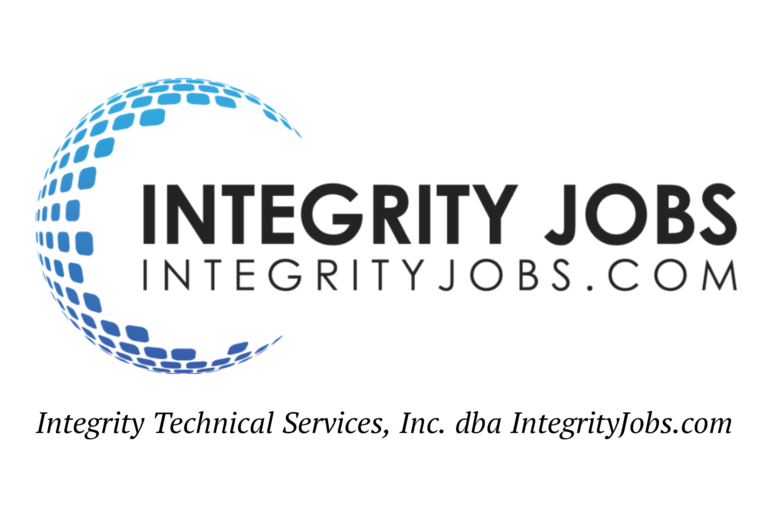Looking for a faster path to a stable, full-time role with benefits and growth? Permanent direct hire placements help you secure a long-term offer without cycling through temp gigs.
With Integrity Jobs, you’ll get personalized coaching, resume polish, and interview prep aligned to your field. We explain the differences between direct hire, temp-to-hire, and temporary so you can choose the right path with confidence.
In this guide, you’ll see the process, employer best practices, real-world tips, and answers to key FAQs. Follow along to prepare smart, interview well, and apply with confidence for roles that fit you.
What Are Permanent Direct Hire Placements?
Permanent direct hire placements mean a company hires you as a full-time employee from the start. This is best when you want job stability and benefits, and the employer wants to add someone to their team long term.
It includes steps and options that help both you and the company find a good match.
Definition and Key Characteristics
Permanent direct hire placements are jobs where the company hires you directly, not through a temporary agency. You become a regular employee with a contract that usually has no set end date. You often get benefits like health insurance, paid time off, and retirement plans. You apply or are matched based on your skills and experience for a specific role.
Once hired, the company sets your salary and work schedule. This kind of placement focuses on finding the right fit for both your career goals and the company’s needs.
How Permanent Direct Hire Placements Differ from Contract Roles
Permanent direct hire roles offer ongoing employment with no planned end. Contract jobs might last a few months or more and often don’t include benefits.
Temp-to-hire jobs give you a chance to prove yourself before the company decides to make you permanent. With permanent direct hire jobs, you don’t need to worry about contracts ending or needing to find a new job quickly.
These roles give you more job security and a clear career path within the company.
When to Use Direct Hire Staffing Solutions
Choose permanent direct hire staffing if you want a steady job where you can grow your career. This option works well if you’re ready to commit to one employer and want full benefits.
It also fits when companies look for specific skills to add to their team for the long term.
If you want to try out a job before fully committing, temp-to-hire or contract roles might be better.
But when you want stability and to invest in your career, permanent direct hire placements are the way to go.
Benefits Of Permanent Direct Hire Placements
Choosing a permanent direct hire role comes with several advantages. These jobs offer steady work, deeper connections with your employer, and financial benefits that grow over time.
Long-Term Workforce Stability
Permanent direct hire positions give you job security that temp work often can’t match. Your role is not tied to short projects or temporary contracts, so you know you have steady paychecks.
This stability helps you plan for your future, like saving for a home or investing in your skills. Employers value permanent staff with consistent schedules and benefits like health insurance.
You can focus on growing your skills without worrying about when your next job will come.
Enhanced Employee Loyalty
Being hired directly by a company means you are part of their team. This creates a stronger connection between you and your employer.
They want you to succeed and often invest in your training and career development. When your employer supports you, you’re more likely to stay and work harder.
This can lead to better raises, promotions, and job satisfaction. You also get a chance to build friendly relationships with coworkers, which makes work more enjoyable.
Cost-Effectiveness Over Time
Permanent direct hire jobs often come with better pay and benefits than temporary roles. You may get health insurance, paid time off, retirement plans, and other perks that save you money.
Avoid the hassle and cost of frequent job searches and gaps between projects. Staying with one company can also reduce expenses like travel or new work clothes for different jobs.
Over time, this stability means more consistent income and less stress about money.
The Permanent Direct Hire Placement Process
Getting a permanent job through direct hire means finding a role that fits your skills and career goals. This process includes understanding what you need, finding the right job, and preparing for interviews that lead to a solid offer.
Initial Needs Assessment
The first step is to understand what kind of job you’re looking for and what employers expect. You’ll discuss your skills, experience, and career goals with a recruiter or job counselor.
This helps match you with opportunities that fit you well. You’ll also learn about the job market for your field, what roles are available, and the skills employers want.
This step makes sure you’re focused on realistic job options that suit your goals.
Candidate Sourcing And Screening
After you clarify your needs, recruiters look for qualified people who match the job’s requirements. They review resumes, check skills, and verify experience to find the strongest matches.
This part may include phone or video screenings to assess your fit before scheduling interviews. It saves you time by making sure you only get called for jobs where you are a good fit.
Transparency and honest communication matter here, so you know where you stand.
Interview Coordination
Once you move past screening, the recruiter helps coordinate interviews between you and the employer. They handle scheduling, preparation tips, and follow-up.
You’ll get advice on what questions to expect, how to answer clearly, and how to highlight your strengths. After interviews, the recruiter stays in touch to keep you updated on feedback and next steps.
This support helps lessen stress and keeps you informed.
Best Practices For Employers
To get the right employees for long-term roles, focus on clear job descriptions and making sure candidates fit well with your team. Set up new hires for success from day one.
These steps help save time and build a stronger workforce.
Creating Compelling Job Descriptions
Your job description sets clear expectations and attracts the right people. Start with a clear and specific job title that matches the role. Use bullet points to list essential duties and daily tasks so candidates can see what the job involves. Be upfront about the skills and experience needed.
Include any required certifications or tools your team uses. Describe what makes your company a good place to work, like benefits or growth opportunities.
This helps job seekers picture themselves in the role. Avoid jargon and keep your language simple and honest.
Evaluating Cultural Fit
Finding someone who fits your company’s culture is as important as skills. Look for candidates whose values match the team’s.
Ask questions about how they handle challenges, work with others, and their preferred work style. Use real examples during interviews to see how they behave in situations similar to your workplace.
This helps you predict how well they will join and support your team. A good cultural fit leads to better teamwork and longer tenure.
Effective Onboarding Strategies
A strong start helps keep new hires. Have a clear plan for the first few weeks that includes training and meeting key people.
Share your company’s mission and how its work fits in. Assign a buddy or mentor to answer questions and guide them.
Keep communication open and check in regularly to see how they’re doing. A positive onboarding experience boosts confidence and helps new employees become productive faster.
How Staffing Agencies Facilitate Direct Hire Placements
Staffing agencies help you connect with employers by guiding you through the hiring process. They stay in close contact with both sides and offer protection if things don’t go as planned. They focus on finding the right fit quickly while keeping payment and communication clear.
Agency Selection Criteria
When choosing a staffing agency, look for one with experience in your field. Agencies specialize in industries such as engineering, IT, skilled trades, and manufacturing.
They understand the skills and qualifications employers need. Affordable payment plans for employers are another good sign.
This shows the agency values long-term partnerships without putting too much pressure on either side. Check if the agency offers full-service recruiting, meaning they handle everything from screening resumes to interview support.
Look for agencies that treat candidates like people, not just placements. This human-first approach helps you feel supported and confident during your job search.
Partnership Communication
Clear communication is key when working with a staffing agency. Expect frequent updates on job openings, interview feedback, and next steps.
Good agencies act as a bridge between you and the employer, sharing honest information and listening to your concerns. You’ll also want agencies that encourage questions from you.
This two-way conversation makes sure your goals and skills match the employer’s needs. You’ll feel more comfortable if the recruiter explains what to expect in interviews and how to prepare.
Strong communication also means agencies keep your information secure and respect your privacy. This makes your job search safer and less stressful.
Guarantees And Replacement Policies
Some staffing agencies offer guarantees if the direct hire placement doesn’t work out. If you leave the job or are let go within a certain time—often 3 to 6 months—the agency can help find you another placement at no extra cost.
Agencies may also have replacement policies. These give employers peace of mind, knowing they won’t lose their investment if a hire isn’t a good fit.
For you, this means you are supported if your new job doesn’t meet expectations. Make sure the agency explains these policies upfront. Knowing these details helps you trust the process and understand what happens if your placement needs to change.
Trends In Permanent Direct Hire Placements
Permanent direct hire jobs are changing in several ways. The use of new technology is making hiring faster and smarter.
Certain industries are growing quickly and looking for more long-term workers. Remote and hybrid work setups are also shaping how you find and keep a permanent job.
Adoption Of Technology In Hiring
More companies now use technology to find and hire permanent workers. You may notice video interviews, AI tools, and online job platforms as part of the process.
These tools help employers review resumes faster and find candidates who match the job well. For you, this means applying online can be simpler, and you might even take part in virtual interviews.
Some companies use skill tests or automated messages to keep you updated. Staying comfortable with tech will help you stand out and get hired quicker.
Industry-Specific Demand
Some industries are hiring direct hires more than others right now. Engineering, technology, and manufacturing often offer more permanent roles because these sectors need steady, skilled workers to keep projects running.
You might find more permanent office support and skilled trades jobs in Ohio, where demand remains strong. If you’re job hunting, focus on industries growing in your area.
These fields usually offer better job security and career growth.
Remote And Hybrid Placement Evolution
Remote and hybrid work options have become key in permanent placements. Many employers now offer jobs where you can work from home part-time or full-time.
This shift means you can apply for positions in different cities or states without moving. Remote roles give you more flexibility in your daily routine.
Hybrid work balances office time with remote work, helping you stay connected while enjoying freedom. Knowing how to work and communicate well in these setups will make your application stronger and improve your chances of keeping the job.
Challenges And Solutions In Permanent Direct Hire Placements
Finding the right permanent job can be tricky because there are often fewer candidates than open roles for certain skills. You also face risks like hiring someone who might not fit well or leave early.
Addressing these issues helps you land a lasting job match and avoid common roadblocks.
Overcoming Talent Shortages
When jobs need specific skills—like in engineering, IT, or skilled trades—finding candidates can be tough. Employers often compete for the same limited talent pool.
You can improve your chances by focusing on in-demand skills and showing your readiness to learn. You can also stand out by tailoring your resume to highlight your strengths clearly.
Make sure your skills match the job listing so recruiters see you as a strong fit. Employers might also expand their search to nearby cities or offer training programs. This opens up more opportunities for you if you’re willing to grow your skills or consider new locations.
Mitigating Hiring Risks
Hiring someone permanently comes with risks like a bad job fit or early resignation. This can waste time and money for employers and leave you frustrated.
Be honest about your abilities and career goals during interviews. Clear communication helps ensure the job suits you and the company.
Employers use background checks and skills testing to find the right candidates. You can prepare by practicing interviews and keeping your resume accurate.
Understanding what success looks like in the job helps both you and the employer. Setting clear expectations early makes it easier to build a long-term working relationship.
Legal And Compliance Considerations
When you aim for a permanent direct hire, knowing the important legal rules helps protect you and your future employer. You need to understand basic employment laws and how background checks work to keep everything fair and transparent.
Employment Law Fundamentals
Employment laws cover your rights and the employer’s duties during hiring and while you work. They protect you from discrimination based on race, gender, age, or disability.
These laws also set rules for wages, breaks, and safe working conditions. Employers must follow these laws when hiring permanent workers.
For example, they can’t ask illegal questions during interviews or treat candidates unfairly. Knowing your rights helps you spot problems early and speak up if something feels wrong.
You have a right to clear job descriptions and fair pay. If you feel your rights are violated, you can reach out to government agencies or seek advice from groups for support.
Background Checks And Verification
Employers often run background checks before hiring you permanently. These checks confirm your identity, work history, and education.
They may also include criminal records, depending on the job. You should get a notice before a background check happens.
Employers must get your permission in writing. If they find something concerning, they should tell you before making a decision.
Be honest on your applications because background checks will reveal false information. If there are issues in your past, be ready to explain them upfront. This honesty builds trust and shows you want to move forward with integrity.
Future Outlook For Permanent Direct Hire Placements
The demand for permanent direct hire positions is expected to stay steady or grow in many fields, like engineering, IT, skilled trades, and office support. Employers need reliable workers who can grow with their companies.
This means you have a good chance of finding long-term roles that fit your skills. More companies prefer hiring permanent staff to keep things stable.
This approach helps you build a lasting career with benefits and a steady income. It also means better chances for promotions and career growth.
Here’s what can help you succeed with permanent direct hire jobs:
- Focus on skills employers need today, such as tech or management.
- Keep your resume updated and use free resources to improve it.
Consider flexible payment options for placement services, making the job search easier.
You can expect staffing firms to keep offering a mix of affordable and friendly services. They want to support you through a clear, simple process so you don’t feel lost or pressured.
Make Your Next Move With Confidence
Permanent direct hire placements give you stability, benefits, and a clear path to growth. You’ve seen how the process works, what employers value, and how to present your best fit. Use these steps to target roles that match your skills and long-term goals.
With Integrity Jobs, you get friendly guidance, resume tuning, and interview prep that align with your field. We help you compare direct hire, temp-to-hire, and temporary options so you can choose the route that fits your timeline and priorities.
Ready to act? View open jobs, apply now for permanent direct hire placements, or contact an Account Manager to map your next steps today.
Frequently Asked Questions
Understanding key details about permanent direct hire placements can help you feel more confident when moving toward a new job. This covers how the hiring process works, what to expect from agencies, and tips to prepare for your next big opportunity.
What is the difference between temporary and direct hire staffing?
Temporary staffing is for short-term work that lasts a few weeks or months. Direct hire means you’re hired permanently by the company from day one.
With direct hire, you get full employee benefits and job security. Temporary roles may not offer these long-term perks.
How does the recruitment process work for a permanent placement?
First, the recruiter talks with you about your skills and goals. Then, they match you with a job opening.
You’ll go through interviews with the employer. If all goes well, you get hired directly by the company as a permanent employee.
Are there any benefits to working with a staffing agency for permanent positions?
Yes. Staffing agencies connect you to jobs you might not find on your own. They offer support throughout the process and can help with your resume or interview prep. Plus, their service is affordable and friendly.
What kind of support can I expect from an agency after I’m placed in a permanent role?
Agencies often check in to see how you’re doing and if you need help adjusting to your new job. They can also provide advice if any workplace issues come up. You’re not alone once you start working.
How do I prepare for a successful interview for a direct hire position?
Research the company before your interview. Practice answering common questions clearly and honestly. Dress appropriately and bring copies of your resume. Showing up prepared helps you make a good impression.
What factors should I consider when evaluating a permanent job offer from an employer?
Look at salary, benefits, and work-life balance. Consider the company’s culture and your chances for career growth. Think about whether the job fits your skills. Make sure the position matches your goals.




